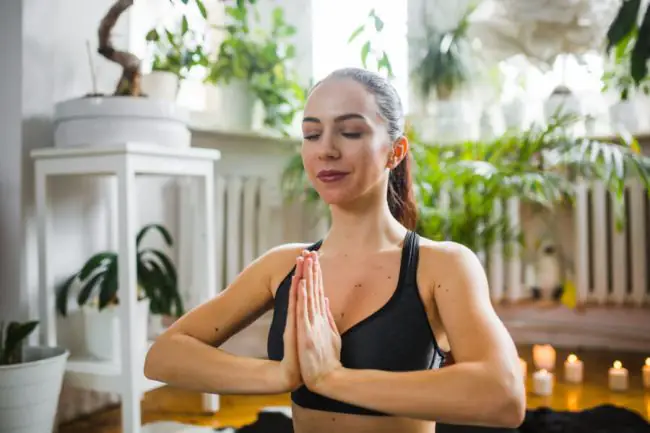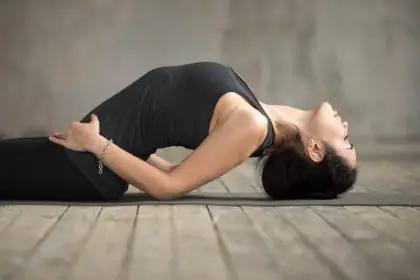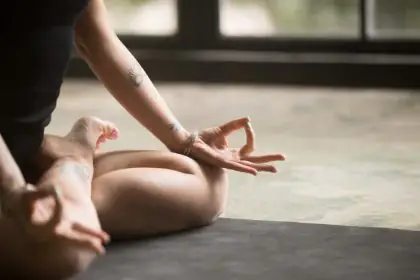Meditating might seem like a heavy task at first for beginners, but it’s an accessible practice that anyone can incorporate into their daily life.
The benefits, such as improved mental health, less stress, and more focus, make meditating worthwhile. Going through the essentials of meditating for beginners, and offering practical tips and techniques will help you get started.
Why is Meditation Beneficial for Beginners?
For those new to meditation, the practice can significantly reduce stress, lower anxiety levels, and improve concentration. By incorporating meditation into your routine, you can also enhance emotional health and foster mindfulness by being present and aware of your thoughts without being overwhelmed.
In Spain, where many people experience fast-paced lifestyles, meditating offers a valuable way to find calm amidst the chaos. Whether you’re looking to unwind after a busy day or need a mental break during your hectic schedule, meditating can provide that much-needed moment of peace.
Understanding the Basics of Meditating for Beginners
Meditating doesn’t require special equipment, but there are a few steps you can take to enhance your experience and make the practice easier.
Meditating involves focus and relaxation. The aim isn’t to completely clear your mind, which is a common misconception. Instead, meditating for beginners is about noticing your thoughts and gently guiding your focus back to your breath or a focal point, like a mantra or sound. Understanding this fundamental concept is important for meditating effectively.
Creating a Calm Space
When starting out with meditating for beginners, helps to establish a calm and quiet environment. This doesn’t need to be anything elaborate just a corner of your home where you won’t be disturbed.
Ensure the space is free of distractions and has a comfortable seating arrangement. While sitting is often recommended for meditating for beginners, lying down is also acceptable if you find it more comfortable. Just be cautious not to fall asleep!
Breathing Techniques
Breathing techniques are fundamental for “meditating for beginners”. One of the simplest methods is to focus on your breath. As you inhale and exhale, pay attention to the sensation of the breath entering and leaving your body.
This technique helps anchor your focus and is a key component of meditating for beginners. If your mind wanders, gently guide your attention back to your breath.
A popular technique for meditating for beginners is breath counting. Inhale and count “one,” exhale, and count “two.” Continue this process up to ten, then start over. This method helps maintain focus and is an excellent starting point for those new to meditating.
Setting Realistic Goals
Setting realistic goals is essential when meditating for beginners. Start with short sessions, around 5 to 10 minutes daily. The goal is to build a consistent practice, not to meditate for long periods right away. As you become more comfortable with meditating, you can gradually increase your session length to 15 or 20 minutes.
Guided Meditation for Beginners
If you’re unsure how to start meditating for beginners, guided meditation can be a helpful resource. Many apps and online platforms offer free or affordable guided sessions designed specifically for “meditating for beginners”. These guided sessions can help you stay focused and provide structure to your practice.
Here are a few types of guided meditation that are particularly useful for meditating for beginners:
Body Scan Meditation
Body scan meditation is a great technique for meditating for beginners. This practice involves focusing on different parts of your body and noticing any sensations, tension, or relaxation. It helps increase bodily awareness and can be very calming.
Mindfulness of Breath Meditation
Mindfulness of breath is another effective method for meditating for beginners. This technique involves focusing on your breath without trying to alter it. By simply observing the natural rhythm of your breath, you can reduce stress and cultivate mindfulness.
Loving-Kindness Meditation
Loving-kindness meditation, or Metta, is beneficial for meditating for beginners who want to foster compassion. This practice involves repeating phrases like “May I be happy, may I be healthy” and extending these wishes to others. It promotes positive emotions and empathy.
Tips for Sustaining a Meditating for Beginners Practice
Maintaining a regular meditation practice can be challenging, but these tips can help you stay on track with meditating:
Overcoming Common Challenges in Meditating for Beginners
One common challenge in meditating for beginners is dealing with a wandering mind. If you find your thoughts drifting, it’s important to remember that this is a normal part of the process. The key is to gently bring your attention back to your breath or focal point without judgment.
How to add Meditation into Your Daily Routine
To ensure consistency, try incorporating meditation into your daily routine. Whether it’s in the morning to start your day or in the evening to wind down, setting aside a specific time each day will help you build a habit. Consistency is more important than duration when it comes to meditating for beginners.
Conclusion
Starting meditating may seem overwhelming, but with these straightforward steps, you can make it a part of your daily routine. Focus on your breath, create a peaceful space, and set realistic goals. With time and practice, you’ll experience the many benefits of meditation. Remember, meditating for beginners isn’t about achieving perfection it’s about creating a space for yourself to find calm and clarity.
FAQs
How should a beginner start meditation?
To begin meditating, find a quiet space and focus on your breath for 5-10 minutes each day. It’s important to stay consistent and patient.
What is the first rule in meditation?
The first rule for meditating for beginners is to be patient and non-judgmental. It’s normal for your mind to wander; gently bring your focus back each time.
How many minutes should a beginner meditate?
For meditating for beginners, start with 5-10 minutes a day. As you get more comfortable, you can gradually increase the duration.
What are the five basic steps to meditate?
Find a quiet space, Sit comfortably, Focus on your breath, Gently refocus when your mind wanders, and Practice consistently.






